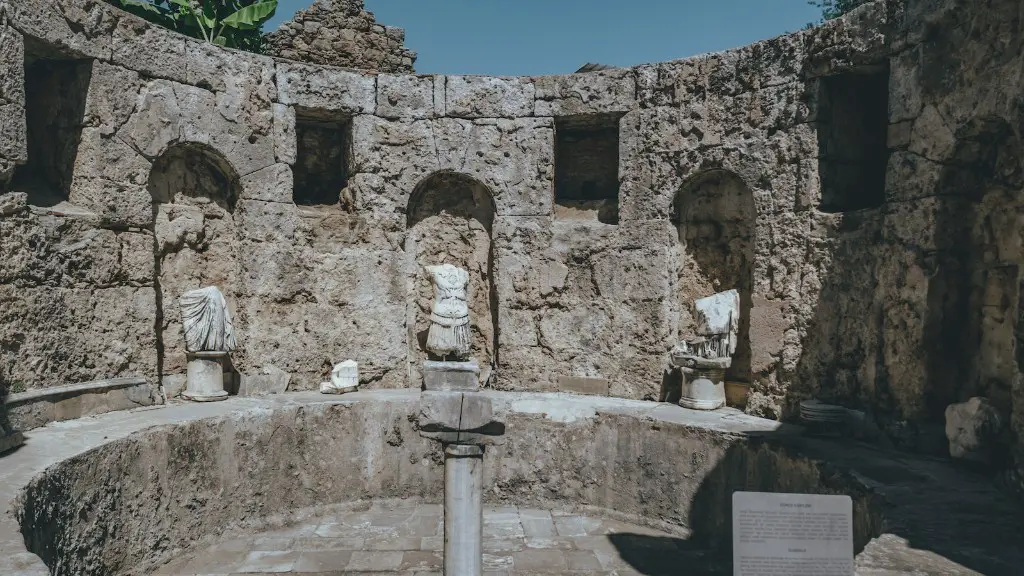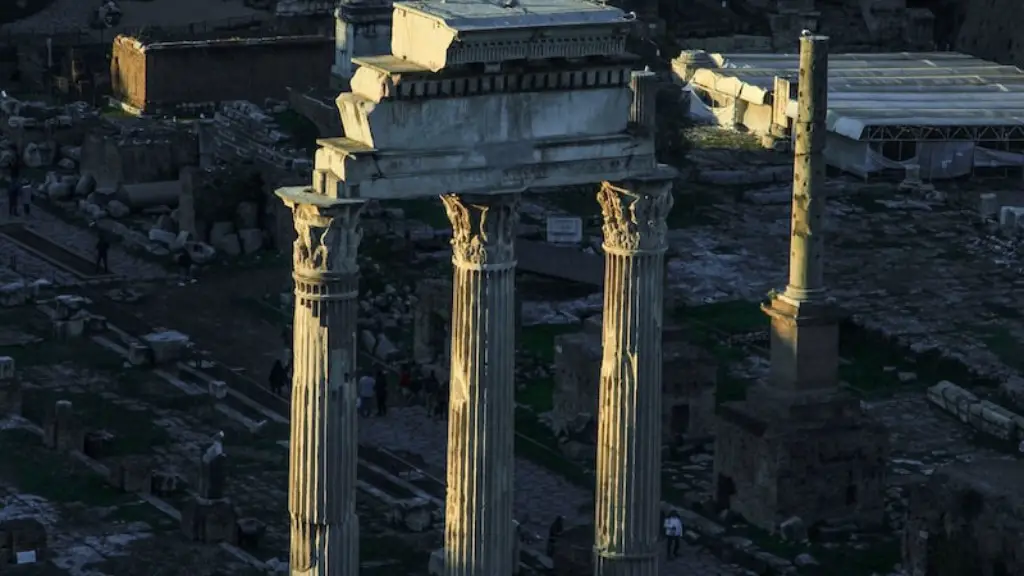Occupations Of The Lower Classes
The Roman Empire was known to be one of the most powerful and influential civilisations in world history. This was largely possible due to the overwhelming stratification of its citizens into different classes. While the wealthy and powerful led the Mediterranean world to success, the vast majority were barely able to get by. The lower ranks of Roman citizens, known as Plebeians, were mainly employed in the menial occupations that kept the empire running.
The most common jobs Plebeians held in Ancient Rome were agricultural. Although a very small number owned their own farms and grew their own produce, the majority were employed as a labourers, who were paid daily wages. Most farming jobs were physical and done outdoors, making them quite demanding. Other agricultural occupations included tending to animals, working in the fields, building irrigation systems and collecting crops.
Additionally, Plebeians were commonly found in trade professions. Despite the fact that they usually lacked the wealth and connections of the upper classes, Plebeians still needed to make a living–so many of them became small-scale merchants, hawking their wares through the streets of Rome or in various markets. Many of them worked as porters, helping to transport goods from place to place. This category also included metalworkers and craftsmen who created a variety of objects, such as pottery, clothing, and tools.
Although the majority of Plebeians were employed in agricultural and trade professions, there were also some who worked as personal servants. This was relatively prestigious for a Plebeian, as it usually entailed access to the households of wealthy families. These servile roles included cleaning, cooking, and childcare.
Domestic Occupations
The majority of Plebeians spent their days working in the home. Whilst their occupation will have been necessary to keep the family fed, clothed and housed, these chores were undertaken before any other duties. Domestic duties included preparing meals, gathering firewood, and cleaning the home. As the Roman Empire was a largely patriarchal society, they also included looking after the children, as well as maintaining the family farm.
The mother of the house was often seen as the glue that kept a family together, and she was often responsible for the ambitious plans and strategies that helped the financially struggling family maintain their home. Therefore her role in bringing financial success to the household was paramount.
In spite of achieving relatively low pay for their duties, the Plebeian women held a number of extremely important roles within the family. They were often responsible for ensuring that the children were given a rudimentary education in the basics of literacy and numeracy. They could also pass on their various practical skills, such as embroidery, weaving, and needlework, to the younger generations. This allowed them to supplement their family’s income.
Religious Professions
As well as their occupation in the professional spheres and within their own homes, Plebeians were also responsible for aiding the Gods of the Roman Empire. They would take on the role of clerics, working as priests in certain religions. This was done in order that they could give thanks to the gods and pray for their favour. Additionally, they acted as healers and midwives in traditional Roman healing practices, such as herbalism and alchemy. As well as this, plebeians were known to take on many different roles within the religious community, such as preparing meals for the priests, providing maintenance for the temples, and even taking part in religious ceremonies.
Military Occupations
Plebeians also had the opportunity to serve the Roman army. The army was ever growing and expanding its horizons, so it became an attractive source of employment for the lower classes. The most common roles included common soldiers, cooks, blacksmiths, and builders. The army also required support staff, such as clerks and administrators. However, these roles were not as heavily recruited for as the higher ranks, and the lower classes were often stuck in the part-time, back-breaking labour.
Fishing Occupations
The Plebeians were also responsible for providing food to the Roman Empire. A prominent method of subsistence was fishing. This was done as part of the larger trade economy, as the Roman Empire was heavily reliant on sea trade. The Plebeians would employ their expertise in order to procure the most valuable fish, such as tuna and lobster. They would head out in small boats, sometimes heading to distant fishing grounds, and they would typically work extremely long and difficult hours.
Hunting And Trapping Occupations
The lower classes of society also had to master the art of hunting and trapping. They would go out into the forests surrounding Rome and utilize various tactics such as traps, dogs and hunting guns in order to procure valuable game such as deer, rabbits and quail. This could be done for the purpose of either subsistence or to provide for the local markets.
Gambling Occupations
Plebeians also often participated in various gambling activities. This was a common manner of providing entertainment and leisure, as well as a source of income if done successfully. These activities included dice, card games and chariot racing. Head to head betting was also popular among the lower classes. Gambling was often seen as a way to escape the monotony of life and get a taste of luxury.
Skilled Occupations
The lower classes often specialized in specific skills that enabled them to provide a unique service for their clients. One such skill was carpentry. This was essential for building everything from homes to boats. Other such skills included animal husbandry, cheese-making, medicine, and leatherwork. These skilled laborers often worked closely with the upper classes, providing their services in return for higher wages.
Overall, the Plebeians within the Roman Empire were the backbone of society, many of them taking on the roles which made the civilization possible. Despite the harsh conditions of daily life, they provided the necessary tasks that kept the fabric of the empire intact.


